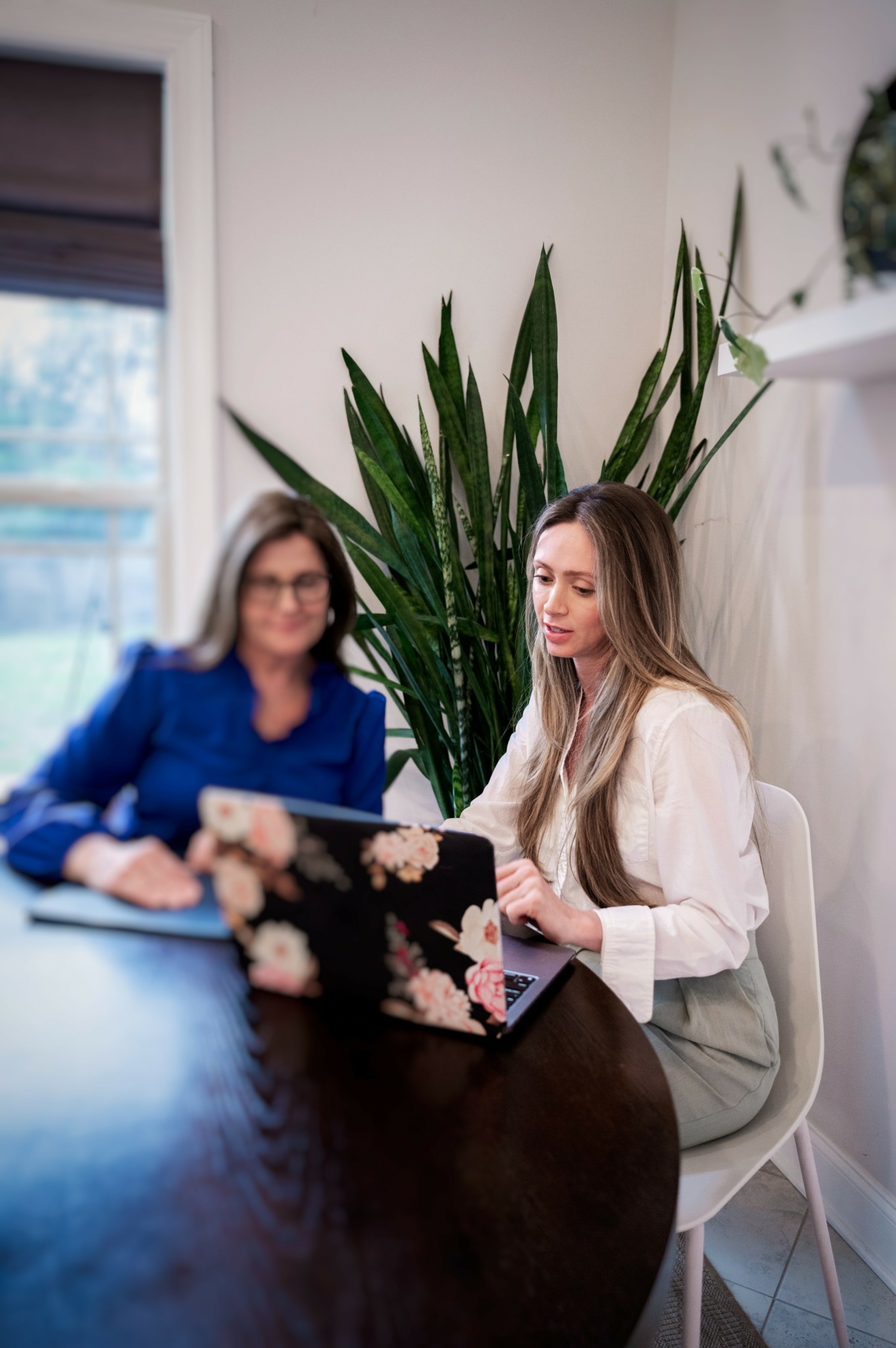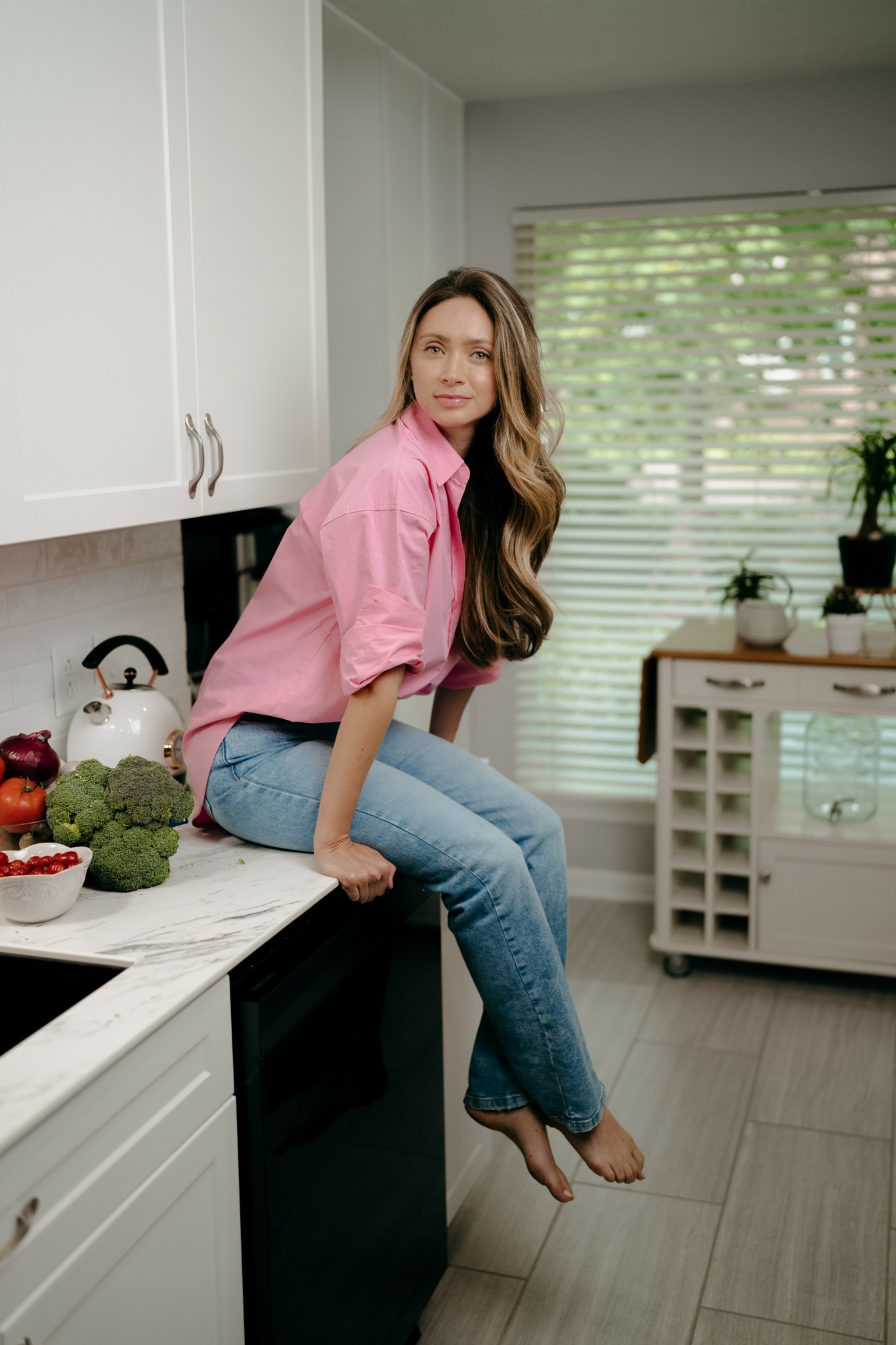We recently connected with Andrea Vasquez and have shared our conversation below.
Andrea, thanks for taking the time to share your stories with us today We’d love to hear about how you went about setting up your own practice and if you have any advice for professionals who might be considering starting their own?
Starting my own practice has been anything but smooth! When I made the decision to switch careers, I knew it was going to be a challenge, but I didn’t quite anticipate just how steep the learning curve would be. I had to completely change my mindset from my medical background to a coaching approach. Learning to guide clients through their wellness journeys, rather than just prescribing a solution, was a big shift. I had to understand how to meet clients where they are and empower them to make changes at their own pace.
One of the biggest hurdles was figuring out the business side of things, especially here in the U.S. Starting a business from scratch was an entirely new world for me. Everything from setting up the legal structure, figuring out taxes, marketing, and even how to present my services was a learning process. I experimented with different approaches—private consultations, workshops, webinars—just to see what resonated most with me and my clients.
The language barrier also made things more complicated. Since Spanish is my first language, adjusting to communicating effectively in English, especially when discussing complex health topics, was a challenge. Finding clients and building a network was another uphill battle. It took a lot of effort to meet people and build trust, whether it was with clients or potential collaborators.
Looking back, I wouldn’t say I’d change anything because each challenge has taught me valuable lessons, but if I had to offer advice to someone just starting out, I’d say: Be patient. Building a business—especially in a new field or a new country—takes time. Don’t be afraid to experiment, and accept that it’s okay to make mistakes along the way. Surround yourself with people who support you and don’t hesitate to ask for help when you need it. It’s a long process, but if you’re passionate about what you do, it’s worth every step.

As always, we appreciate you sharing your insights and we’ve got a few more questions for you, but before we get to all of that can you take a minute to introduce yourself and give our readers some of your back background and context?
I was born in Medellin, Colombia, and graduated from medical school in 2009. I worked as a primary care physician until 2017, and from 2015 to 2017, I also did Botox and fillers. But honestly, it didn’t feel right. Most of my patients came in just for prescriptions, and there wasn’t enough time to really help them understand and improve their health. To be honest, I don’t think they even cared much because the culture around prevention and education wasn’t there yet.
For me and my family, food was always important—family reunions, gatherings, celebrations—there was always around food. But we didn’t always make the best choices. When my grandparents were diagnosed with diabetes, it was hard for them to control their condition, and it was a shock for them to stop eating what they always loved. On the other hand, I noticed some friends with very restrictive diets, and sometimes I found myself snacking more when feeling anxious, even though I wasn’t hungry. This inspired me to take a course in nutrition and dietetics in 2016 at Universidad Europea del Atlántico in Spain. It wasn’t exactly what I expected, but it fueled my interest even more.
In 2017, I moved to the USA, which was a huge challenge. I couldn’t practice medicine without a license, so I had to find other jobs, like working at a front desk and hosting at a restaurant while I figured out my next move. Did I want to go back to medical school? Did I want to start over doing something else? Then I found functional nutrition, where you look for the root cause of health conditions and try to correct what led you to that point, rather than just treating symptoms and expecting them to go away. I wanted to approach health and wellness from a holistic perspective, focusing on education instead of just prescriptions. I believe that when people understand what’s happening in their bodies and why, they can make changes that really stick and improve their lives.
My business offers a variety of services designed to promote holistic health and wellness. I specialize in online nutrition coaching, where I work closely with clients to improve their nutrition, manage stress, optimize sleep routines, and incorporate exercise into their daily lives. I provide personalized strategies to improve these areas and empower individuals to make sustainable lifestyle changes.
Additionally, I host online workshops and webinars covering a range of nutrition topics, helping participants achieve healthier and more balanced routines.
I’ve authored two ebooks: “The Sweet Escape,” a 16-day challenge to break the sugar habit and improve overall health, available in both Spanish and English. This guide provides specific strategies to balance meals, understand how to identify added sugar in food labels, manage cravings, and includes a variety of recipes and more. I’ve also written an elimination diet guide tailored for surgery patients to reduce inflammation and support recovery.
For those looking for hands-on guidance, I offer personalized grocery shopping sessions, teaching clients how to identify nutritious ingredients and organize their pantries effectively.
One of my offerings is “The Green Cube,” which is a mix of organic vegetables blended and frozen into a cube, perfect for daily juicing.
I would love to work more on hosting in person or online workshops, discussing different nutrition and lifestyle topics, where participants gain practical strategies to implement at home.
All my services are available in both Spanish and English.
What sets me apart and what I’m most proud of brand-wise is my unique blend of medical expertise and functional nutrition knowledge. My background in medicine gives me a deeper understanding of how the body functions. However, what truly distinguishes me is how functional nutrition has equipped me with tools to understand the broader impacts on health—from food choices and stress to sleep patterns, environmental toxins, and even relationships.
I meet my clients where they are, without judgment, and I work with them to create a plan that works specifically for them. Sometimes this means trial and error because what works for me might not work for you. Also, I want them to know that I don’t have all the answers, and sometimes it takes more work or even a group of professionals working together, but there’s always a chance to make significant changes, even if they are small.

We often hear about learning lessons – but just as important is unlearning lessons. Have you ever had to unlearn a lesson?
A significant lesson I had to unlearn from my conventional medicine background was the idea that addressing symptoms alone is enough to restore health. In traditional medicine, you’re trained to diagnose based on what the patient says is bothering them—whether it’s pain, discomfort, or something more serious—and then prescribe treatments or medications to alleviate those symptoms. The focus is primarily on eliminating what’s immediately wrong.
The shift came when I discovered functional medicine, where the approach is not just about treating the “what” but digging deeper into the “why.” Instead of stopping at the symptoms, you explore the root causes—like stress, diet, lifestyle, or even emotional factors—that might be triggering a condition. It’s not just about making someone feel better in the moment; it’s about understanding the interconnectedness of the body and helping it heal itself in a more sustainable way.
For example, if someone comes in with chronic headaches, traditional medicine might prescribe pain relief. Functional medicine, on the other hand, would ask why those headaches are happening in the first place. Is it related to poor nutrition, lack of sleep, gut health, or even unresolved emotional stress? The goal is to not only relieve the pain but also prevent it from returning by addressing the underlying issues.
Unlearning that focus on quick fixes and learning to see each person holistically has been a transformative process for me. It’s a much more empathetic way of practicing, and it’s allowed me to connect with patients on a deeper level, helping them create lasting change rather than just temporary relief.

Other than training/knowledge, what do you think is most helpful for succeeding in your field?
Other than training and knowledge, I think personal experience is one of the most helpful things in my field. I can relate to many of my clients because I’ve struggled with health challenges myself. For the past four years, I’ve dealt with chronic pain, which has impacted my sleep and even the way I eat. Going through that has given me a much deeper empathy for my clients. I understand firsthand that creating a healthy lifestyle isn’t a straight path. It’s full of ups and downs, and some days feel harder than others. But it’s the persistence, the small steps, and the ability to be kind to yourself that really make the difference. It’s not about being perfect; it’s about showing up for yourself, even on the tough days.
Contact Info:
- Instagram: @andrea.vasquez.wellness


Image Credits
Olivio Netto
Taylor Farrant


